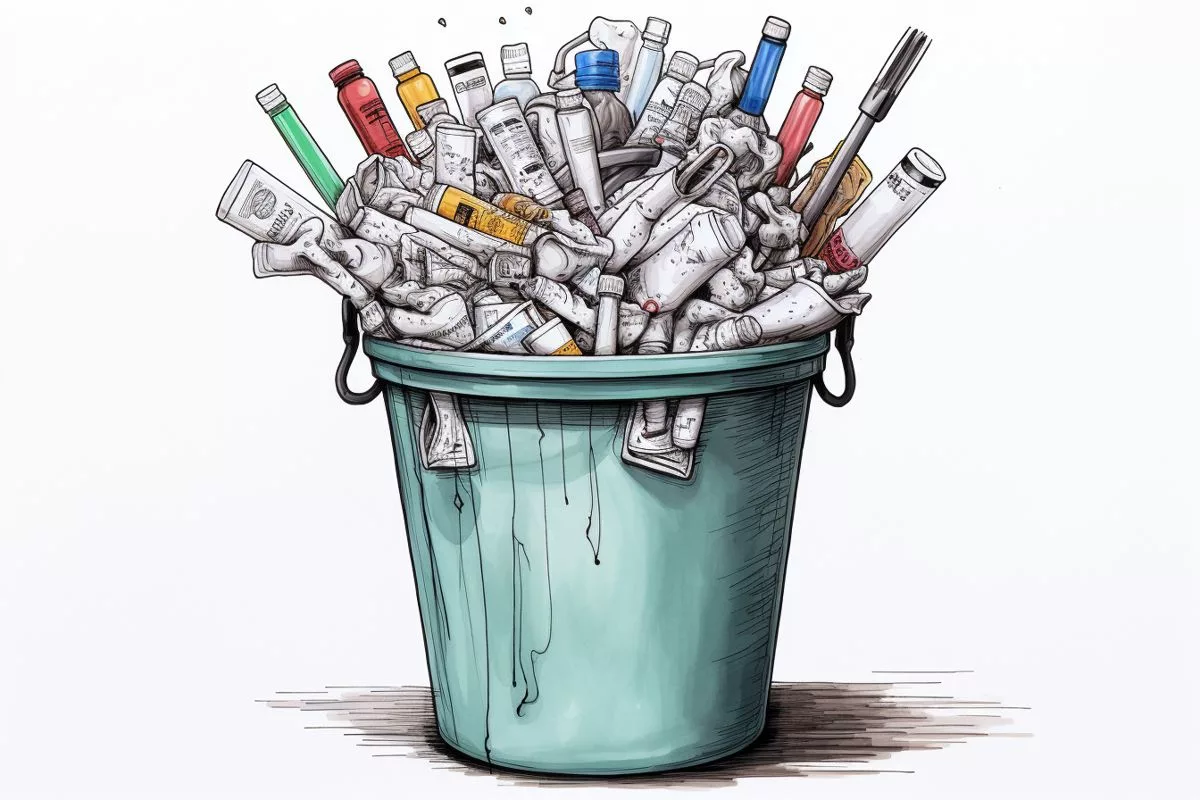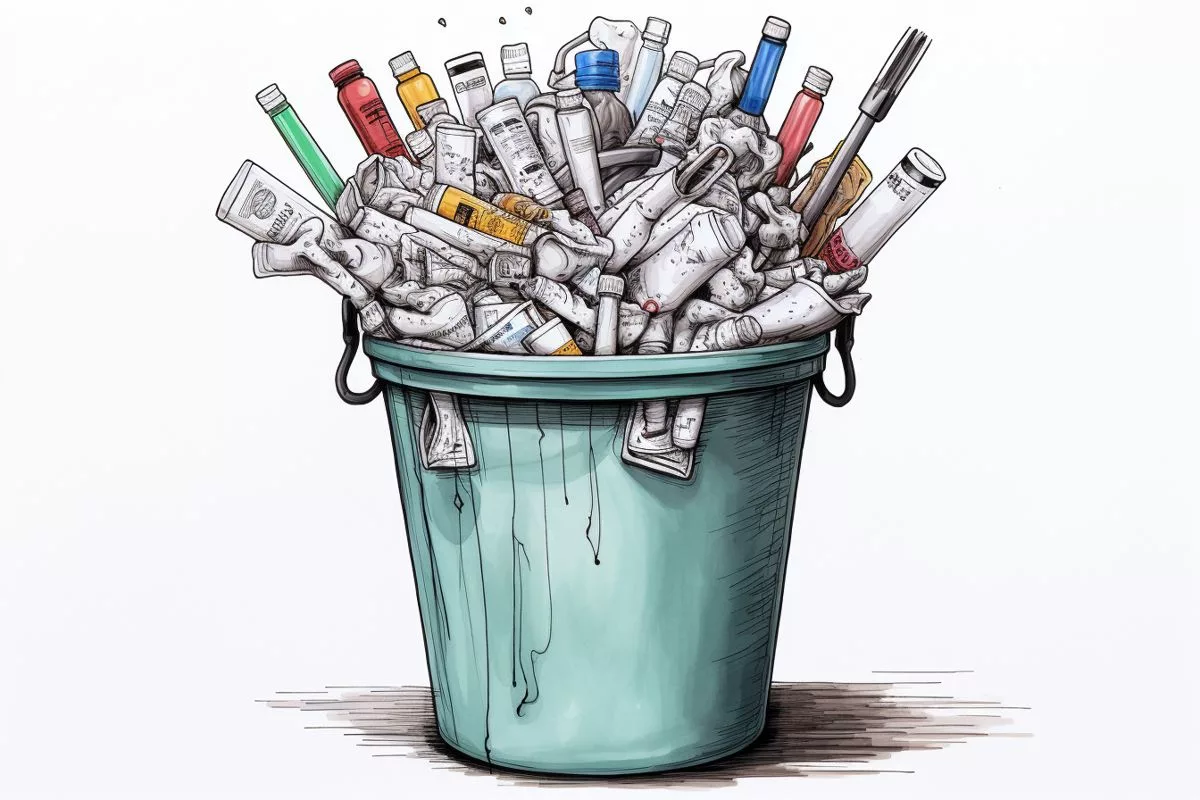The Gauteng Department of Health is investigating the illegal dumping of medical waste in Ormonde, Johannesburg. The community watchdog discovered the dumped waste, including syringes and medical records, and alerted the authorities. The investigation aims to determine the source of the waste, whether it came from any GDoH institutions, and hold those responsible accountable. The incident highlights the importance of adhering to waste-management procedures and the need for communities to remain vigilant in reporting and preventing such activities.
What is the Gauteng Health investigation about?
The Gauteng Department of Health (GDoH) has launched an investigation into the illegal dumping of medical waste in the Ormonde area of Johannesburg. The department is seeking to determine the source of the waste material and whether it came from any of its institutions. The investigation will also establish the individuals responsible for its disposal and hold them accountable. The incident highlights the need for healthcare facilities to adhere to waste-management procedures and for communities to remain vigilant in reporting and preventing such activities.
Section 1: The Onset of an Environmental Hazard
In recent periods, a distressing scenario has surfaced in the southern part of Johannesburg, South Africa, particularly within Ormonde vicinity. A field in this region has shockingly turned into a prohibited dumping site for medical waste. Consequently, the Gauteng Department of Health (GDoH), a key authority in the area, has recognized this menace and swung into action by commencing an inquiry into the conditions leading to this unauthorized disposal of medical waste.
This problem became apparent to the local inhabitants on a certain Saturday afternoon, specifically on November 11th. The local community watch group members, during their routine patrol within the region, stumbled upon this appalling sight. The area was strewn with medical waste, including utilized syringes and what seemed like abandoned medical records.
In a responsible move to address this issue, GDoH communicated this incident to the environmental health section of the City of Joburg. This step ensures that the matter is handled within the legal framework and regulations that govern such occurrences.
Section 2: Unfolding the Mystery of Waste Origin
A significant hurdle confronting the process is the source of the waste material and its intended endpoint – both of which are yet to be determined. Nevertheless, the department banks on a tracking system installed in its facilities to manage the disposal of medical waste or files. As a matter of fact, GDoH collaborates with certified service providers who they trust with the administration of this disposal procedure.
The investigation will extend beyond just tracing the roots of the waste. It intends to establish whether the waste indeed originated from any GDoH institutions, and if true, the individuals charged with its management. This information is crucial as it will provide a foundation for taking the necessary steps to hold the guilty parties accountable.
In an effort to further this cause, the department has engaged a service provider to analyze the dumped waste. This evaluation will assist in determining its characteristics, origin, and the required procedures for its correct disposal.
Section 3: Community Role and the Way Forward
This unfortunate incident serves as a testament to the vital role community vigilance plays in combating such illicit activities. The local community watch team was pivotal in revealing this act of unlawful waste disposal. Their discovery not only unveiled this illicit act but also facilitated prompt action from the Gauteng Department of Health.
While the investigation is ongoing, it is critical to contemplate the underlying issue – the illegal discarding of medical waste. This act overlooks the potential environmental and public health risks associated with medical waste, underscoring the necessity for stringent regulations and measures to discourage such practices.
Additionally, this incident emphasizes the need for transparency and strict adherence to guidelines within healthcare facilities. All waste, especially medical, must be accounted for and disposed of properly. Consequently, healthcare facilities must guarantee that their waste-management procedures are robust and foolproof.
The Gauteng Department of Health’s swift response to this incident is praiseworthy. Their dedication to locating the perpetrators, understanding the cause, and ensuring it doesn’t happen again reinforces their role in protecting public health and the environment.
This incident serves as a stark reminder of the collective responsibility we all share in preserving our environment. It compels not just the health department or environmental agencies, but every person, community, and organization to remain vigilant, report, and prevent such destructive activities.
The Gauteng Health Investigation stands as a powerful representation of the current environmental and public health challenges, embodied in a local incident. The developments will undoubtedly provide crucial learnings for health departments and environmental agencies worldwide, shaping future strategies and actions in the battle against illegal waste disposal.
What was discovered in Ormonde regarding medical waste?
Syndromes and medical records were discovered dumped in a field in the Ormonde area of Johannesburg, South Africa.
Who discovered the dumped medical waste, and what did they do?
The local community watch group found the waste during their routine patrol in the region and alerted the authorities.
What is the Gauteng Department of Health doing about the illegal dumping of medical waste?
The department is investigating the incident to determine the source of the waste material, whether it came from any of its institutions, and hold those responsible accountable.
How does the Gauteng Department of Health manage the disposal of medical waste?
The department has a tracking system installed in its facilities to manage the disposal of medical waste or files. They also collaborate with certified service providers to administer this procedure.
What is the community’s role in addressing such environmental hazards?
The community plays a vital role in reporting and preventing such activities. Local community watch teams can help uncover illicit acts, enabling prompt action from authorities.
What lessons can be learned from this incident?
The incident highlights the need for healthcare facilities to adhere to waste-management procedures, the importance of transparency, and the need for vigilance in reporting and preventing such activities. It also emphasizes the potential environmental and public health risks associated with medical waste, underscoring the necessity for strict regulations and measures to discourage such practices.








